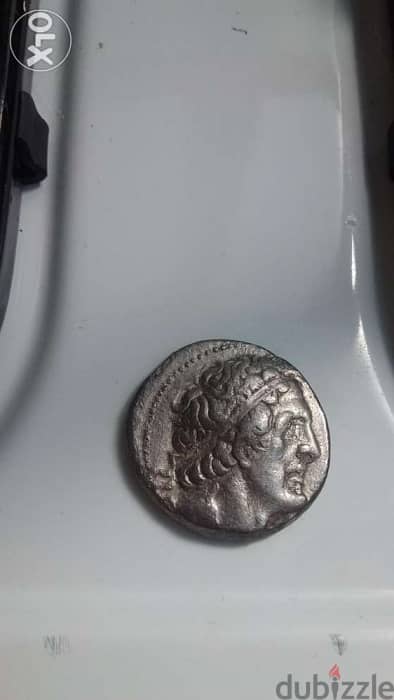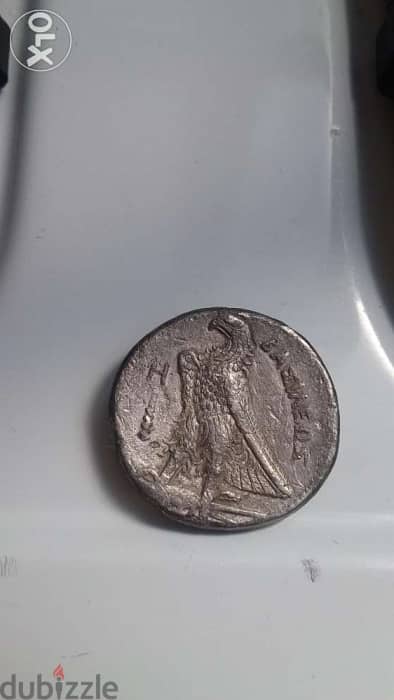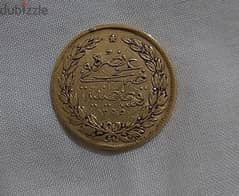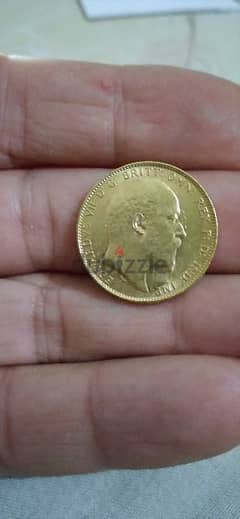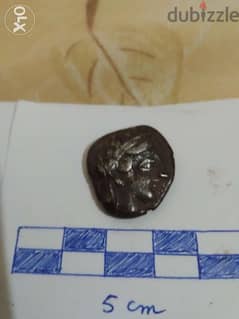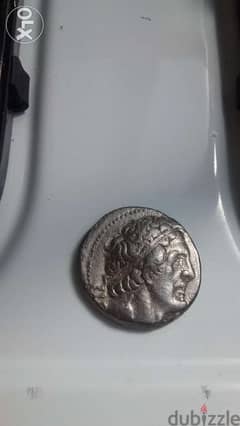
1 / 2
Details
MMO DeliveryNo
Price500
Price TypePrice
TypeCurrency
ConditionUsed
Description
Ancient Ptolemaic Greek Silver Coin Tetradrachm for King Ptolemy I Soter "The founder of the Ptolomac dynasty. year 305 BC. . EGYPT, PTOLEMAIC KINGS. PTOLEMY I SOTER. 305-282 BC. AR Tetradrachm (28mm, 14.06 g, 12h). Obverse die signed by the artist Δ. Alexandreia mint. Diademed head of Ptolemy I right, wearing aegis; tiny Δ (very faint) behind ear / Eagle standing left on thunderbolt; to left, P above monogram. Ptolemy I Soter (Greek: Πτολεμαῖος Σωτήρ, Ptolemaĩos Sōtḗr, i. e. , Ptolemy the Savior, (ca. 367 B. C. E. — ca. 283 B. C. E. ) was a Macedoniaian general under Alexander the Great who became ruler of Egypt (323 B. C. E. — 283 B. C. E. ) and founder of Ptolemaic dynasty which ruled Egypt until the Roman conquest in 30 C. E. In 305/304 B. C. E. he took the title of pharaoh. Ptolemy I was one of Alexander the Great's most trusted generals, and among the seven somatophylakes, or bodyguards, attached to his person. He was a few years older than Alexander, and his intimate friend since childhood. He may even have been in the group of noble teenagers tutored by Aristotle. He was with Alexander from his first campaigns, and played a principal part in the later campaigns in Afghanistan and India. At the Susa marriage festival in 324, Alexander had him marry the Persian princess Artakama.
Ptolemy I's legacy lived on in the dynasty he founded and in the tradition of cultural patronage and fusion which he initiated. The Ptolemies ruled longer than any other dynasty established by Alexander's successors. A flourishing center of learning and scholarship, Ptolemaic Egypt gave the world significant advances in the sciences and in many other areas of knowledge and its greatest library, sadly destroyed. The synthesis of Greek and Egyptian customs, beliefs and practices created by Ptolemy I and his heirs remains a subject for study and research. Against the view of some that multiculturalism is a chimera, the Ptolemaic period of Egypt's history launched by Ptolemy I and sustained by his heirs can be examined as an example of a flourishing, vibrant polity.
Lineage
He was the son of Arsinoe of Macedonia, and, while his father is unknown, he was described in ancient times as either the son of Lagus, a Macedonian nobleman, or that he was an illegitimate son of Philip II of Macedon (which would make him the half-brother of Alexander the Great if true).
Successor of Alexander
When Alexander died in 323 B. C. E. , Ptolemy is said to have instigated the resettlement of the empire made at Babylon. Through the Partition of Babylon, he was now appointed satrap of Egypt, under the nominal kings Philip Arrhidaeus and the infant Alexander IV; the former satrap, the Greek Cleomenes, stayed on as his deputy. Ptolemy quickly moved, without authorization, to subjugate Cyrenaica.
By custom, kings in Macedonia asserted their right to the throne by conducting the burial of their predecessor. Probably because he wanted to pre-empt Perdiccas, the imperial regent, from staking his claim in this way, Ptolemy took great pains in acquiring the body of Alexander the Great, placing it temporarily in Memphis. Ptolemy then openly joined the coalition against Perdiccas. Perdiccas appears to have suspected Ptolemy of aiming for the throne himself, and maybe decided that Ptolemy was his most dangerous rival. Ptolemy executed Cleomenes for spying on behalf of Perdiccas — this removed the chief check on his authority, and allowed Ptolemy to obtain the huge sum that Cleomenes had accumulated.
The taking of Jerusalem by Ptolemy Soter ca. 320 B. C. E. , by Jean Fouquet.
A rare coin of Ptolemy I, a reminder of his successful campaigns with Alexander in India.
Obv: Ptolemy in profile at the beginning of his reign.
To see more press on "Mohamad"
Location
Lebanon
Ad id 101977432
Report this ad
Related ads
Your safety matters to us!
- Only meet in public / crowded places.
- Never go alone to meet a buyer / seller, always take someone with you.
- Check and inspect the product properly before purchasing it.
- Never pay anything in advance or transfer money before inspecting the product.
